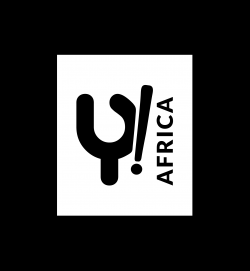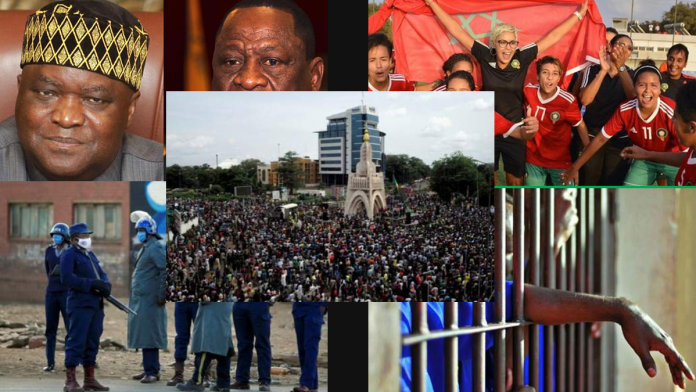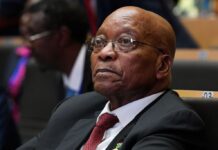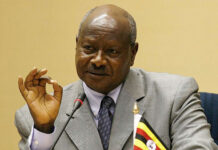Namibia to auction fishing quotas for Covid-19 funds
Namibia’s Fisheries Minister, Albert Kawana, has announced that the country will auction off its fishing quotas on an open market to raise funds to fight Covid-19.
The government intends to auction off quotas for three fish species – horse markerel, hake and monk.
The minister cited the need for medicine and medical equipment as the reason the government wanted to raise money.
Go Deeper: Namibia is one of the African countries with the lowest cases of COVID-19. As at August 6, it is not in the top 10 African countries with high Covid-19 cases. Namibia’s economy has been on a downward spiral since 2016 and estimates are, this year – a 6,9% contraction would be recorded.
According to recent national data, the agricultural sector contributes around 3% (after rebasing) to the gross domestic product , but employs more people than any other sector, constituting 24% of the labour force.
Mali swears in new constitutional court judges
Mali’s President, Ibrahim Boubacar Keïta, attended a swearing-in ceremony in Bamako for the nine new constitutional court judges appointed last week, in a bid to end the political crisis in the country.
The political crisis has been premised on the call for the resignation of President Keïta, who is said to have failed to stop violence by militants and corruption.
The opposition rejected the proposal for the formation of a unity government and insisted that the president should resign.
Go deeper: Imam Mahmoud Dicko, considered the figurehead of the opposition June 5 Movement in Mali, accused France of meddling in the nation’s current political crisis. Claiming – without concrete evidence as of yet, that the former coloniser has been moving behind the scenes to influence the choice of the next Malian prime minister.
Ten killed in deadly Somalia prison break attempt
10 people have died during a shoot-out inside the capital Mogadishu’s main prison.
There is claim that six inmates who were members of the jihadist group al-Shabab were killed and four security personnel also died.
The prison holds some of the most notorious al-Shabab prisoners who are either serving life or death sentences.
Go deeper: In recent times, Somalia seems to be in a state of unrest. From the multiple bombings in Mogadishu killing at least 10 persons to a suicide bombing that killed at least four people, including the bomber at a Mogadishu restaurant that is popular with security forces and government workers. This prison break attempt goes to show that within the systems running in Somalia, there’s little or no order.
Envoys fail to meet opposition over Zimbabwe crisis
Special envoys sent by South Africa’s President, Cyril Ramaphosa, in response to the crisis in neighbouring Zimbabwe cancelled their meeting with the opposition after meeting President Emmerson Mnangagwa.
The two envoys sent last week after Zimbabwe’s government suppressed protests and arrested dozens of activists and opposition politicians have returned to South Africa soon after meeting with President Mnangagwa and a delegation of the ruling Zanu-PF party. The opposition party, MDC Alliance, said its delegation was on standby to meet the envoys after it received a request for a meeting on Monday. But the proposed meeting was called off towards the end of the day.
The government has been cracking down on activists and opposition politicians, sparking global outrage in the form of a hashtag #ZimbabweanLivesMatter.
Go deeper: At this point, the Zimbabwean government is doing all they can to frustrate the effort of both her citizens and neighbouring countries. Zimbabwe has been in the news for all the wrong reasons. The question that is yet to be answered now is “Does the government care for its citizen by rejecting mediation or does Zimbabwean lives not matter at all?”
Moroccan plans for women’s football
The new plan includes the launch of a two-tier professional championship from next season, the establishment of a national under-17 championship and regional championships for youth categories across the country.
“Our objective is to develop and broaden the basis for women to play football in all regions of the Kingdom,” said the FRMF president Fawzi Lakjaa as he unveiled the plans.
A total of $226,000 has been given as funding for the plan with Top-tier teams getting 57.5% of it, while the second-tier gets 38.1%, and the regional leagues gets 4.4% of the total funding.
The agreement also aims to support the management of clubs on an administrative and financial level by the National Technical Directorate and the Financial Department of the FRMF.
The target is to get 90,000 women playing the game by 2024 and to train 10,000 women with the technical skills to coach at women’s clubs.
It is this wide-ranging approach that is particularly appealing to Lindsey.
Go deeper: Morocco is definitely doing something other African countries should be doing. Investing in the future of the women in the country. While other countries seem to be battling Covid-19 and putting measures in place to curb the spread, Morocco is setting up their women ahead of other countries and it won’t be a surprise if they do better at African women competitions few years from now. Morocco is sixth in the ranking of corona virus cases as at August 6 and this means that they have been able to think progressively. Football is something that unites Africans a huge percentage of the time and it is a no brainer why Morocco seems to be doing something about it.






